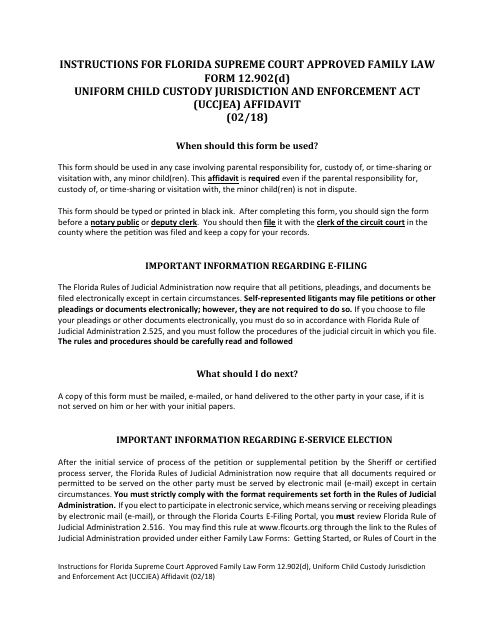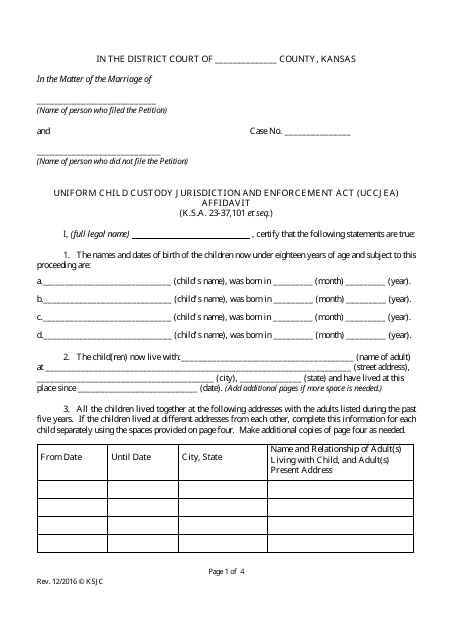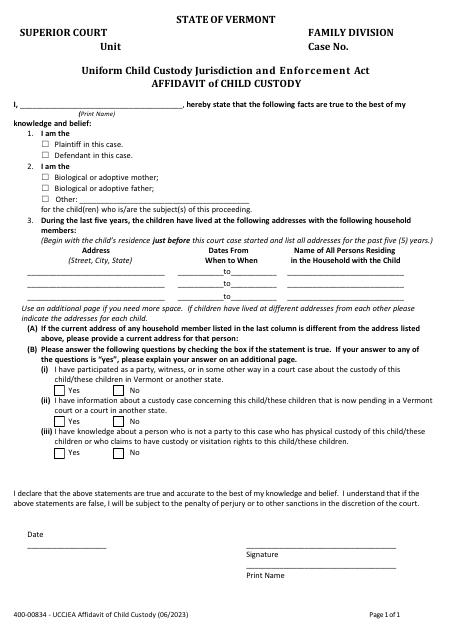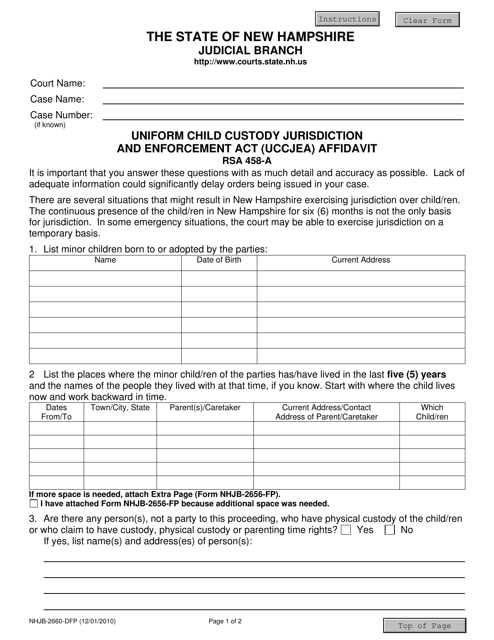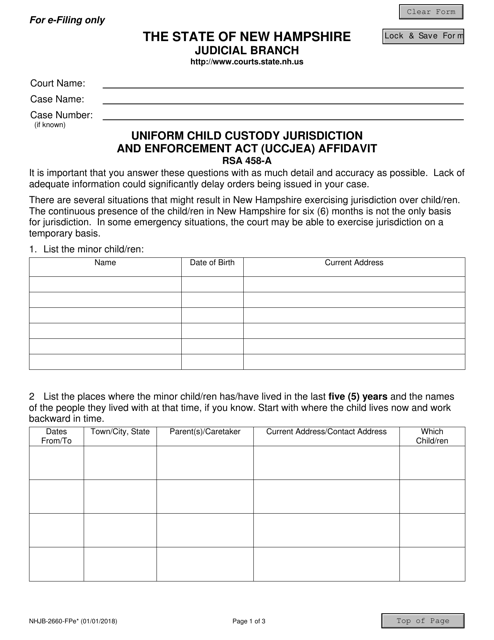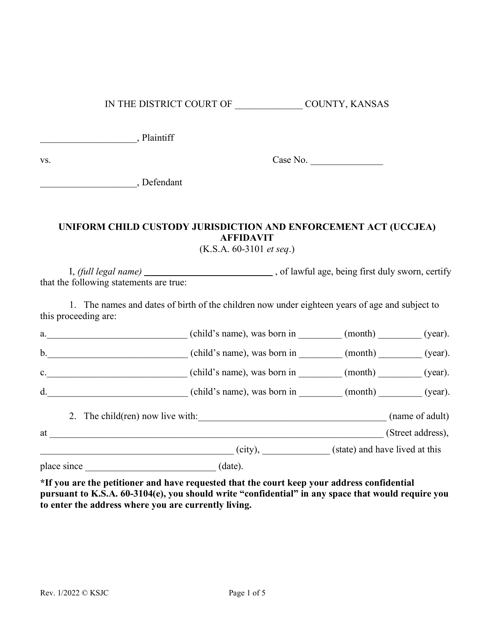Uccjea Affidavit Templates
Are you in the process of filing for child custody or dealing with an ongoing custody dispute? Our UCCJEA Affidavit documents collection is here to assist you in navigating the complexities of the legal system.
The Uniform Child Custody Jurisdiction and Enforcement Act (UCCJEA) is a law that ensures the uniform procedure for determining jurisdiction in child custody cases across multiple states. Our UCCJEA Affidavit forms are specifically designed to help you comply with the requirements of this act when submitting your custody documents.
Whether you reside in Florida, Kansas, New Hampshire, or any other state, our UCCJEA Affidavit forms are tailored to meet the specific jurisdictional requirements of your state. Our collection includes various versions of the UCCJEA Affidavit, such as Form 12.902(D) in Florida, NHJB-2660-DFP and NHJB-2660-FPE in New Hampshire, and the general UCCJEA Affidavit for Kansas.
By using our UCCJEA Affidavit forms, you can ensure that your custody case is handled in accordance with the UCCJEA, safeguarding the best interests of your child. Our user-friendly forms make it easy to gather and provide the necessary information required by the court.
Don't risk the outcome of your child custody case by overlooking the requirements of the UCCJEA. Our UCCJEA Affidavit collection is the comprehensive resource you need to streamline the process and protect your rights as a parent.
Documents:
6
This form is used for filing an affidavit related to child custody under the Uniform Child Custody Jurisdiction and Enforcement Act (UCCJEA) in the state of Florida.
This form is used for submitting an affidavit related to the Uniform Child Custody Jurisdiction and Enforcement Act (UCCJEA) in the state of New Hampshire. It is used to establish or enforce child custody orders across different jurisdictions.
This form is used for filing an affidavit under the Uniform Child Custody Jurisdiction and Enforcement Act (UCCJEA) in the state of New Hampshire.
This document is used in Kansas to establish or modify child custody jurisdiction, and enforce out-of-state child custody orders. It requires individuals to provide information about their relationship to the child and any existing custody orders.

